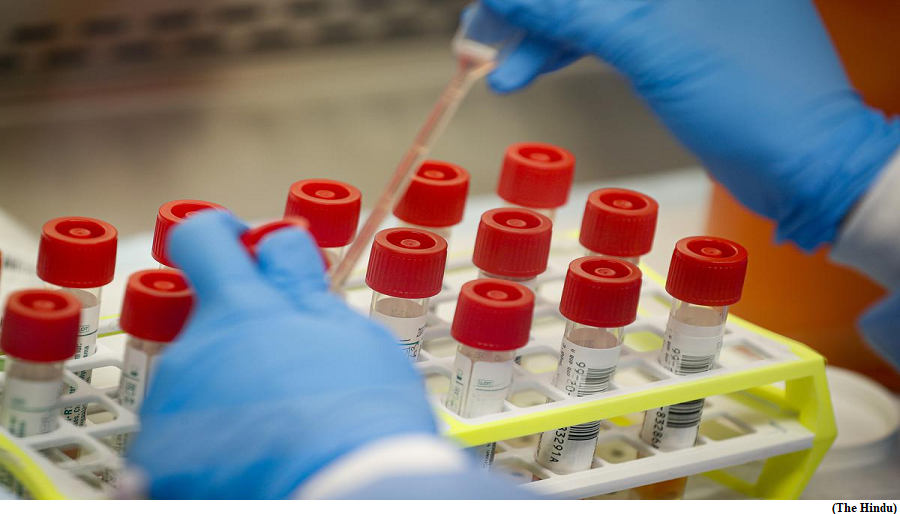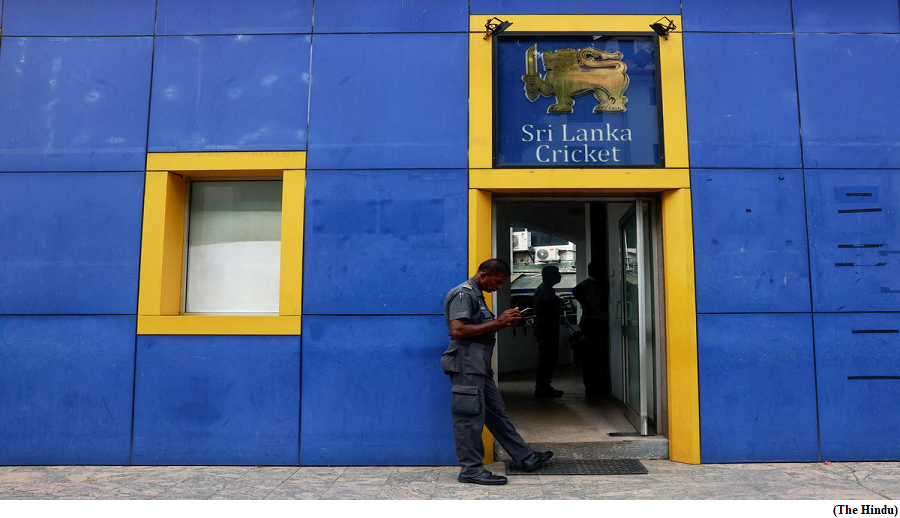COVID 19, brain damage mechanism uncovered (GS Paper 2, Health)

Why in news?
- While COVID-19 continues to be active in several western countries, its severity has diminished. A vexing issue however is Long COVID, a set of long-term health problems that linger for several months following recovery from the infection.
- A recent Harvard study comparing infected and non-infected individuals, reported a 10% risk of getting Long COVID.
- A prominent Long COVID symptom is brain fog, which involves difficulty focusing, memory impairment and challenges in decision-making.
Key Highlights:
- A recent study from Stony Brook University in the U.S., utilising cognitive assessment tests, identified a significant intellectual decline following COVID.
- This was particularly pronounced among those with Long COVID. The exact mechanism remains unclear, but MRI studies had demonstrated shrinking of parts of the brain following COVID-19.
- In this context, researchers from the University of Queensland and Macquarie University of Australia, in collaboration with the University of Helsinki recently made some startling discoveries.
- Using specialised laboratory cells that mimic the human brain they found that infection by the SARS-CoV-2 virus resulted in individual brain cells fusing together as one. This could happen between two neurons, two glial cells or between a neuron and a glial cell. It could also involve more than two cells.
New disease:
- By measuring the inflow of calcium ions into the cell, they further demonstrated that the process of fusion also affected their function. Instead of firing individually, the fused neurons fired all at once. This could disrupt communication between nerve cells.
- In effect, they discovered a new disease state of the brain in COVID-19, where the cells are structurally and functionally altered, yet remain alive. This is distinct from the previously known outcomes of viral infection of the brain, which are cell death and inflammation.
- Apart from SARS-CoV-2, which is known to enter the brain by disrupting the blood-brain barrier, viruses such as rabies, HIV and Nipah are also capable of infecting the brain.
Mechanism of cell fusion:
- The scientists then went on to study the mechanism of cell fusion. When the virus infects a cell, it causes fusion proteins to be expressed on the surface of cells. These proteins latch on to a neighbouring cell, eventually the two cells becoming one.
- Fusion of brain cells not only alters the structure of the complex, but also makes the cells dysfunctional. This process is called syncytium formation, wherein the components of one cell freely flow into others.
- Viruses use this as a clever method for cell-to-cell spread, while staying out of reach of antibodies that lurk outside the cells. COVID-19 is known to induce the same effect in lung cells.
- The SARS-CoV-2 virus uses its spike protein for cell fusion. However, the spike protein used in the vaccine, being an altered version of the original, is not fusogenic. Therefore, there is no concern of such a thing happening after vaccination.
What’s next?
- While some individuals recover after several months, the outlook has been less optimistic for a substantial number of people.
- Being an all-new disease previously unknown to man, knowledge about COVID-19 will continue to evolve.
What led ICC to suspend Sri Lanka Cricket?
(Miscellaneous)
Why in news?
- Recently, the International Cricket Council (ICC) suspended Sri Lanka Cricket (SLC) over government interference.

What was the ‘government interference’?
- In the immediate aftermath of Sri Lanka’s disastrous ninth-place finish in the 2023 World Cup in India, as a result of which it missed out on qualifying for the 2025 Champions Trophy, Sri Lanka’s Sports Minister Roshan Ranasinghe sacked the SLC board and chose former captain Arjuna Ranatunga to head an interim committee.
- However, Sri Lanka’s Court of Appeal issued a two-week stay order and reinstated the SLC regime.
- Sri Lankan parliament unanimously passed a resolution seeking the cricket board’s removal, perhaps the final straw in ICC’s eyes.
- The SLC and the government have, in fact, been at loggerheads for a considerable time, with Mr. Ranasinghe accusing the cricket bosses of maladministration and corruption, and SLC, in turn, criticising the government of unnecessary meddling.
What are ICC rules on govt. interference?
- According to article 2.4, clause D of the ICC Memorandum & Articles of Association, each member must at all times “manage its affairs autonomously and ensure that there is no government (or other public or quasi-public body) interference in its governance, regulation and/or administration of Cricket in its Cricket Playing Country (including in operational matters, in the selection and management of teams, and in the appointment of coaches or support personnel).”
- While there is no bar on politicians holding office, the ICC requires that all decision-making rests with an executive body whose office-holders are determined via free and democratic elections.
- On the day of the suspension, Sri Lanka’s sports minister has had the role of ratifying all national teams, as per the nation’s sports law, which has been in place since 1973.
How will the suspension affect Sri Lanka?
- The ICC Memorandum & Articles of Association states that “any Member that has its membership suspended shall, unless the Board of Directors decides otherwise in its absolute discretion, and for the period of such suspension, be deprived of all of its rights as a Member (whether set out in these Articles of Association or otherwise), including its right to receive distributions of surplus ICC revenues, its right to participate in events sanctioned by the ICC and its right to attend and vote at meetings.”
- When Zimbabwe was de-recognised, all cricketing activity in the country was shut down and funds frozen.
- When Sri Lanka was partially sanctioned in 2014-15, ICC had placed the funds due to the island nation in an escrow.
What’s next?
- The Sri Lankan government will approach the ICC’s dispute resolution committee, an ICC body that reviews appeals from boards on membership matters.
- In case of a failure, the ministry would knock on the doors of the International Olympic Committee-authorised Court of Arbitration for Sport in Lausanne, Switzerland.



